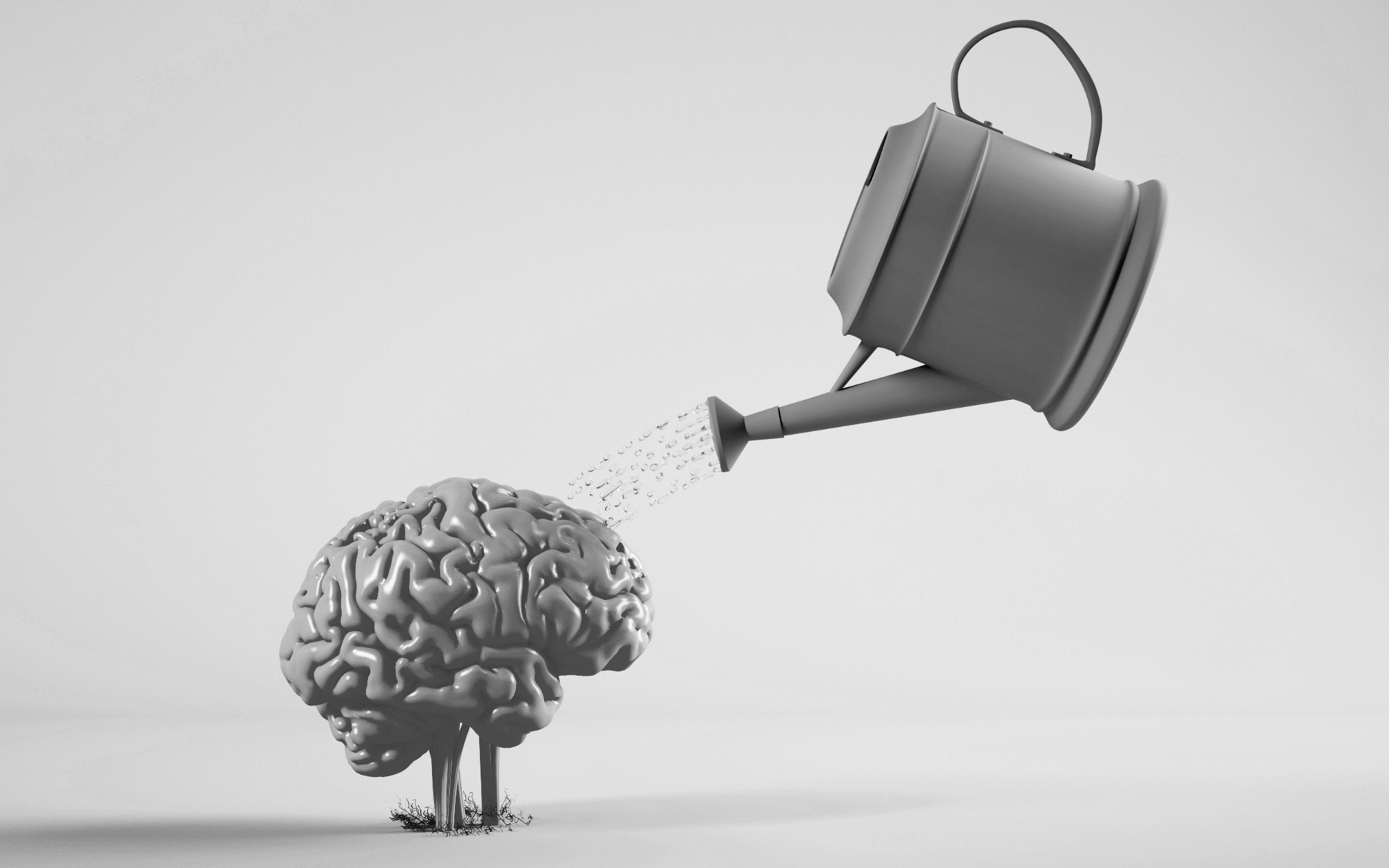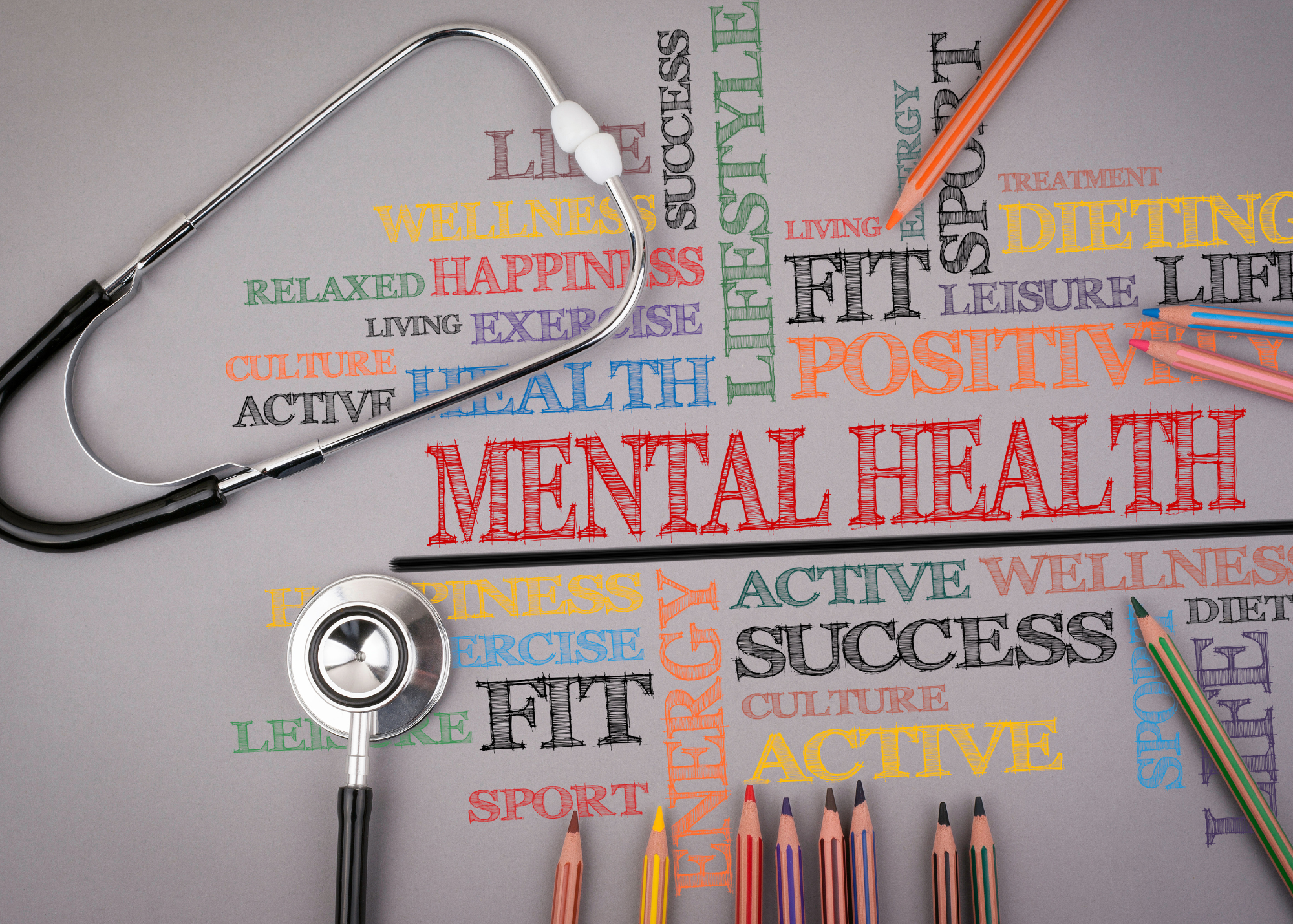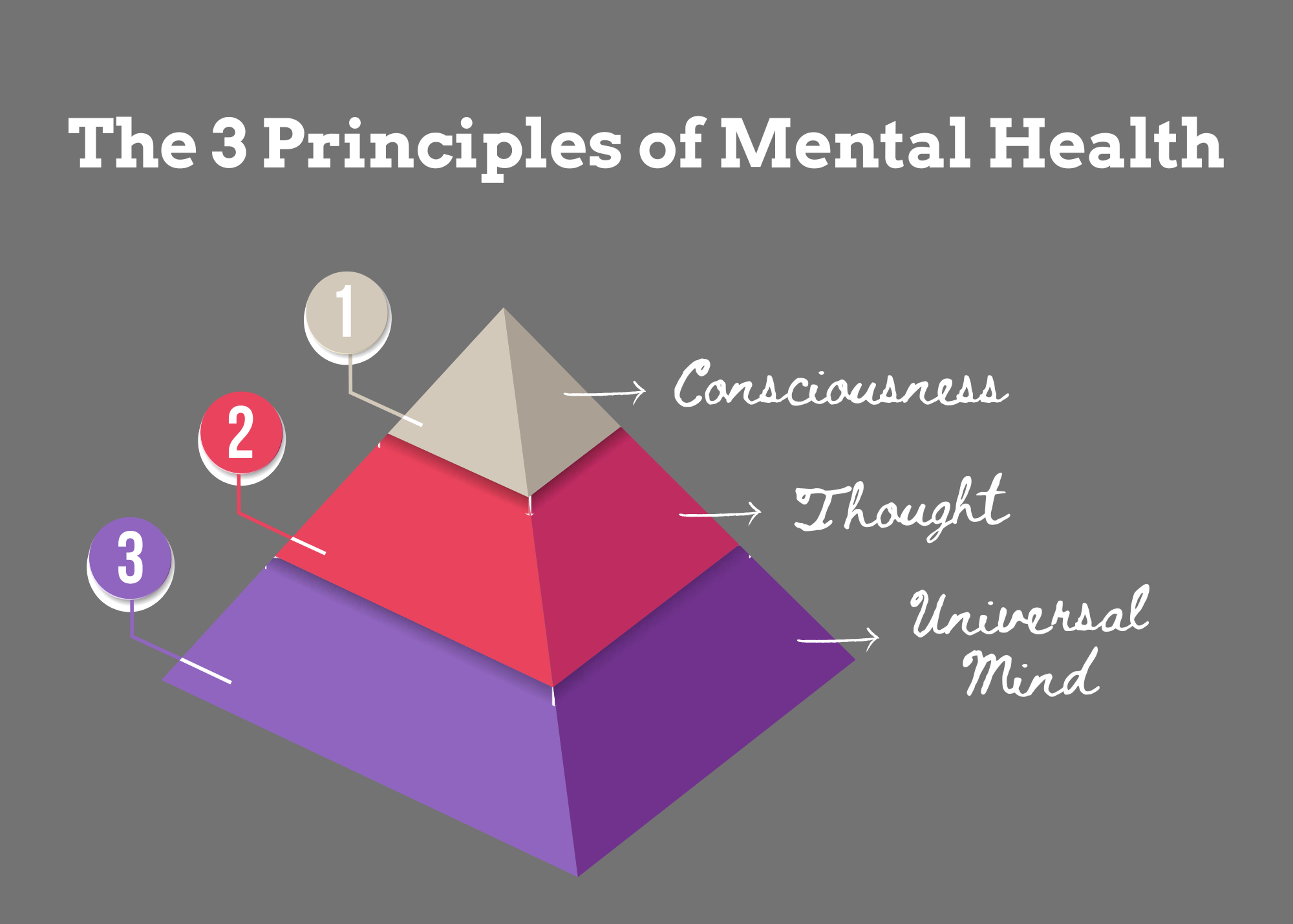
Vol. 25: Mental Health & 7 Ways to Improve It
These days, if someone calls you basic, you might feel insulted – and I'll leave the social commentary there – but basic is a spot-on term to describe the key to improving and maintaining your mental health!
We often try to do 5,000 things daily to keep our mental load balanced and our inner peace in check, but this can lead to adverse outcomes. Instead, we're more likely to see long-term, sustainable success by laying a solid foundation of actions and mindsets – cornerstones that offer daily support and provide a sturdy base to build upon over time.

We all have mental health, just like physical health, and it's not something we acknowledge just one day a year; at least, it shouldn't be.
According to the World Health Organization, mental health challenges affect roughly 20% of the population worldwide, with the most common conditions being anxiety, depression, and substance use disorders. By the way, this data represents the adult population only.
Good Mental Health
I chose the word "good" for a reason: if I'm being sincere, most of the coping mechanisms I used throughout my life to deal with mental health challenges weren't especially good or healthy and certainly did more damage in the long run.
So although some actions or approaches seem to take the edge off temporarily, over time, I found many of my go-to coping techniques became less effective or stopped working altogether because they weren't grounded in healthy decisions.
Good mental health is not just the absence of symptoms of mental illness, just like good physical health is not just the absence of physical symptoms; that's more neutral in terms of your health and well-being rather than indicating that you are in good health.
To quote an article by U.K.'s Mental Health Foundation:
"Good mental health is characterized by a person's ability to fulfill a number of key functions and activities, including the ability to learn; the ability to feel, express and manage a range of positive and negative emotions; the ability to form and maintain good relationships with others; [and] the ability to cope with and manage change and uncertainty."

The War on Mental Health
Thomas Insel, a psychiatrist, researcher, and long-time director of the National Institute of Mental Health admits that even the strenuous efforts made by the mental health community have fallen short. His latest book, Healing: Our Path from Mental Illness to Mental Health, explores how badly America is failing at mental health care and how much more we could do with what we have already discovered.
In the book, Insel writes, "Put simply, the mental health problem is medical, but the solutions are not just medical – they are social, environmental, and political."
For more than half of the twentieth century, people afflicted with mental ailments and instabilities were labeled "crazy" and, for lack of a better descriptor, disposed of within the confines of institutional asylums, which fostered little to no therapeutic avenues toward prolonged recovery.
Then, in the 1970s, a new psycho-spiritual understanding of mental health was born, grounded in three principles: Universal Mind (the power behind the whole show), Thought (the creator of anything and everything), and Consciousness (the principle that recognizes the creation and brings it to our awareness.)
This understanding proposes that all people have innate mental health they can access and sustain regardless of past or present circumstances. I could go on and on about this trifecta theory first introduced by Scottish welder-turned-author and philosopher Sydney Banks, but I'll refrain for brevity.

Over the past four decades, we've learned more and more about the mind's role in our overall well-being, yet the 2022 State of Mental Health in America report confirms that mental health in the U.S. continues to worsen.
While access to mental health resources in the U.S. improved through the implementation of the crisis hotline, 988, as well as increased mental health education and support in schools, advocates like myself remain aware of the ever-present stigma – looming above like a storm cloud, ready to rain down on our parade.
I could climb up on my soapbox, megaphone in hand, and demand we do better as a country, a society, and a species, but I fervently believe that the old saying is true; we must be the change we want to see in others.
7 Strategies for Improved Mental Health
I'll never forget the day my little boy came home from kindergarten, muttering words from the famous nursery rhyme, We're Going on a Bear Hunt.
The song rhythmically illustrates the adventures and lessons learned by some kids and a dog as they embark on a bear hunt – you know, typical childhood activity!
Anyway, my son kept repeating these four lines:
"Can't go over it, can't go under it, can't go around it, got to go through it!"
If memory serves me, the lyrics in question refer to some long wavy grass hindering the kids along their fabled journey into bear country, but if you ask me, the words make an ideal metaphor for the real curveballs life throws.

Okay, so we can't go over, under, or around life's problems; how do we find the courage to walk through them?
Here's a handful of strategies I'm utilizing:
#1.) Speak up
Suppose you can't shake the feeling that something is standing in the way of your mental well-being; firstly, pause for a beat. Then, if your mental health still feels compromised after 24 hours, speak up on the issue within 48 hours.
#2.) Feel your feelings
Being human means having a plethora of emotions. Acknowledge every single one rather than bottling them up or turning to a substance to numb the unpleasant sensations they sometimes bring.
#3.) Ask for help
If you're like me, you would sooner attempt firewalking than ask another person to assist you. But the truth is, we all need help at some point. Most folks jump at the opportunity to lend a hand to their fellow man, but the most helpful ones usually wait until you ask.
#4.) Handle yourself responsibly
Treat yourself like you would someone you are responsible for because, newsflash, you are responsible for yourself! Besides, caring for others is only possible if you address your needs first. So make time for self-care; you serve no one by neglecting yourself, especially not your children.
#5.) Stop trying to escape your pain
Your pain will only worsen and become stronger the longer you try to avoid it. The uneasiness of life exists to teach us valuable lessons. If we look away, we can't learn. Likewise, when we numb our discomfort with drugs, alcohol, food, or doom-scrolling, a temporary lack of feeling replaces necessary healing.
#6.) Make time for silence
Whether spending a few extra minutes standing under the warm water cascading from your shower head or engaging in a 5-minute meditation while alone in your parked car, enjoy every moment of silence the universe gifts you. Scientific studies prove that multiple "brain breaks" throughout the day are necessary for peak mental performance.
#7.) Put your thoughts on paper
Although this sounds like typical advice a writer would give, this strategy applies to everyone, regardless of your familiarity with the Chicago Manual of Style – in lay terms, spelling, and punctuation are irrelevant when it comes to journaling for the sake of mental fortitude.
Whether you're an academic scholar or read at a second-grade level, I can confidently assure you that penning your thoughts on paper – actual pen, actual paper – is ten times more effective than attempting to dissect that shit in your head.
Bonus: Revisiting old journals years later is a surefire way to feel grateful. To read my take on the gifts of gratitude, please check out #parentingSLACKS Vol. 14!
Mental Health Matters
Improving our mental health is more significant now than ever. Still, finding ways to get by while living proactively with purpose seems more challenging every day. Yet, despite the vast and unrelenting upheavals we face as a collective society, our forefront commonality remains that of our complexly magnificent minds.

My mental wellness significantly improved when I moved it to the top of my priority list and began engaging in open and honest conversations about it with others; the more we talk about it, the easier it gets.
Your mental health touches every area of your life. Our accolades and struggles are not separate; they are two components of one entity. How we feel physically and mentally will affect our parenting practices, professional performance, and, ultimately, our entire view of reality.
If you asked me to sum up in one sentence why we should all make our mental health an absolute priority, I'd say:
"Overall satisfaction with life is directly proportionate to what we do and don't do to improve and maintain our mental condition."
Like the 90s girl group, En Vogue sang,
"Free your mind, and the rest will follow."

0 Comments Add a Comment?